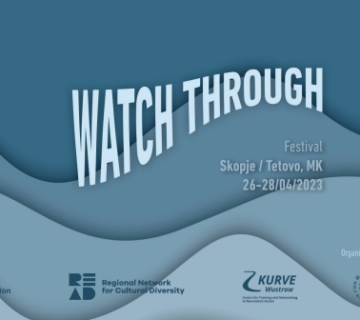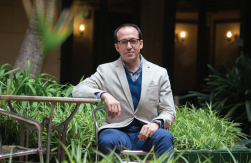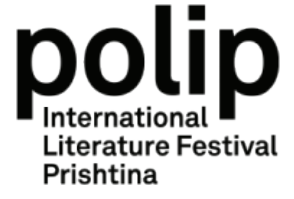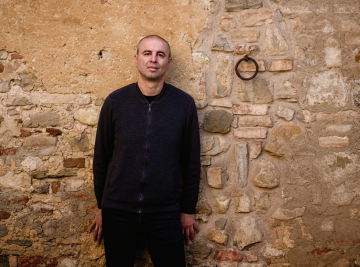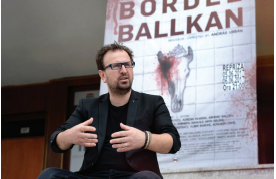Elizabeta Sheleva was born in Ohrid (1961). She is professor at the Department
of General and Comparative Literature, University in Skopje. She is the Chairperson of the Independent Writers’ Association of Macedonia Sheleva has been the manager of the scientific and research project ‘Doubled Otherness – Balkanism Gender Aspects’, and has also been a visiting professor at the post-graduate studies school ‘Feminism in Transnational Perspective’, in Dubrovnik, Croatia. The text we are publishing is her Address on the Occasion of Announcing Ana Blandiana as The 2019 Winner of the “Golden
Wreath” Award of Struga Poetry Evenings, won previously by Pablo Neruda, Eugenio
Montale, Rafael Alberti, Yannis Ritsos, Allen Ginsberg, Joseph Brodsky, Yves Bonnefoy, Seamus Heaney, Margaret Atwood, etc.
Ana Blandiana was born and raised in Romania’s rich, highly admired literary tradition and dynamic literary scene that have produced world-class authors such as Emil Cioran, Eugène Ionesco, Nichita Stănescu, Mikhail Eminescu and many other leading literary figures.
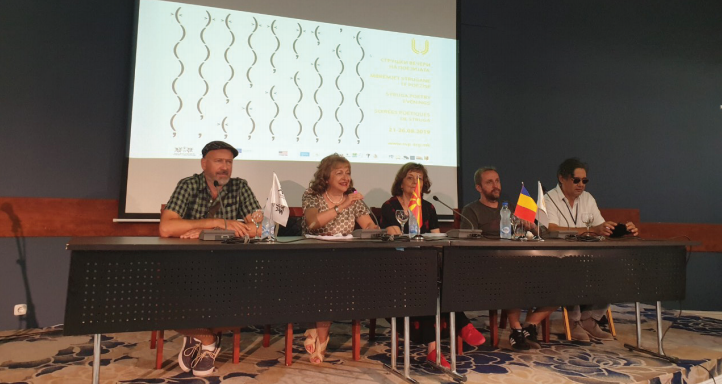
Being a woman in this cruel, deeply patriarchal and cynical world has never been easy, not even today. However, being a woman, a writer, and a tireless fighter for justice and true values – this certainly requires much more commitment, courageous perseverance and sacrifice. This also means living with the burden and the risk, doubled due to the naked (and fateful) fact that you were born a Woman! Especially if you are a woman born here in the Balkans, a place that has traditionally been mistrustful of (and definitely arrogant towards) women!
This is why it seems that her pseudonym unites the euphony of the traditional legends of the walled Ana with the name of her mother’s home village, thus creating a new powerful coinage symbolizing Ana, the female poet, but this time “walled” in the impressive Fortress or Temple of Words.
Ana Blandiana has a powerful and impressive poetic voice – but she is also a symbol of rebellion – the rebellion against Ceausescu’s totalitarianism, especially when her father was imprisoned for the mere fact that he was a priest, while she herself ever since her youth has been censored and persecuted like many other innocent victims of the regime. I could never forget her shocking statement and testimony that she was afraid to leave her own manuscripts in her home, and had to carry them with her wherever she went, or hide them in her friends’ houses so that they wouldn’t be seized or destroyed by the government. And perhaps this is why in her poetry there is a strong, expressive and tempting echo of the forbidden books, literary works, and truths, but also a sense of suppressed beauties and victories – glowing and blazing long before finally reaching the triumph or the repentance of the day!
‘I was banned, even before I became a poet’ – Ana shockingly testifies, revealing how (during Ceausescu’s totalitarian regime) she was hiding her manuscripts and carried them with her wherever she went (sometimes leaving them to her trusted friends); every time she left her home, she was afraid that they would be taken away and burned.
Blandiana’s poetry does not flirt with the popular, yet superficial writing; she is very critical in fact, and fundamentally concerned about the loss and absence of freedom, this contemporary and historical abyss by which all humanity is stunned.
Her writing combines her personal and intimate challenges with her metaphysical and contemplative thoughts; it is in fact lyricism of simultaneous euphonies: between Eros and Thanatos, drawing on their embrace, but also of euphonies of the corporeal and the spiritual, of the sensory and the sensual, of the sincere outspokenness of a child and the wise pondering of mature age. The critical reception of Ana Blandiana across Europe testifies of her significant contribution to the enrichment of contemporary literature and presents a vital impetus to revitalization of its noble mission…
Her lyricism is often meditative, at times even resonating with a confessional tone, marked by constant existential anxiety and profound questioning of the fundamental dilemmas of human fate, the understanding (and challenges) of otherness/inequality, questions of moral responsibility and inevitability, the creative power of love as the basic agent of openness to the world, as well as the literary energy, the dramatic yet silent mysteries and temptations of the creative act.
‘Everything I touch turns into Words,’ Blandiana says, suggesting once again that poetry is actually Magic, not a conscious intention; it’s a God-given gift, and not something that is rationally or (consciously) predetermined.
“Poetry between Silence and Transgression” (as the title of one of her essays suggests) most appropriately captures the self-reflective pendulum in which her lyrics vibrate: she is hard on herself but also on others, she is deeply perceptive and ecstatic, bitter and lucid, rebellious and energetic, fanciful and animate.
Charles Altieri from the University of Berkeley confirms the praises for her work in the Introduction to her volume The Sun of Hereafter:
One of Europe’s best poets, Blandiana is amazing for her imaginative capacity to make readers feel they share quite intimate conditions with the poet, even as the poems complicate and deepen their sense of an inescapable metaphysical dimension to experience. (…) Blandiana is a pure lyricist (…). Her poems characteristically achieve strange precisions by having pervasive metaphors unfold her sense of “sacred void” as negative plenitude.
The greatness of a poet is not determined by the number of published works, or even by the number of awards received, but above all and primarily by the depth of his/her poems, the authenticity of the lyrical expression, the lucidness of the spiritual spark, as well as the boldness to openly uncover existential wounds, the pain of existence itself, the facing with death, as an infallible outcome of existence.
For Anna Blandiana the poems are not décor, ornament, clothing, but a “shield” or “bones”, which are painfully pre-arranged around her “flesh”, while pain itself remains the “only guarantee” of the certainty of existence. “We live in a wound; the only certain thing is the pain that surrounds us.” Thereto, not only one’s own and personal, but also the pain of others, which often remains unprovided for, untouched by the word and consolation, is an integral part of Blandiana’s poetry, which can thus be experienced as a ritual redemption of suffering and a dignified mark of despair, both personal as well as someone else’s despair.
‘I’ve privatized the pain / And now, all around me / It’s closed up in the walls of my flesh, / Like a magnet that has pulled it in from the world.’
Creation, according to Blandiana, inevitably involves the voluntary self-sacrifice of the artist, as the famous folk ballad of “The Artist Manole” (in various versions, also known as common benefit of the Balkan folklore) implies, and it is twice as valid and applies precisely to the woman-creator and her double-sacrificed position in society (initially, walled like any woman, thus sustaining the family “edifice”, while, secondarily, walled like any creator sustaining his/her own artistic edifice, with his/her own body and blood)!
In addition to the inevitable moment or imperative of personal self-sacrifice, a particularly important and emphatic place in Blandiana’s poems is reserved for the motive of the poet’s guilt and responsibility (and the artist’s in general) as a witness of a certain time and its great sufferings and injustices (when, for example, the ‘portrait of the victim’ itself, as Anna writes, ‘becomes more important than its earthly life’).
As an immediate contemporary, a censored (and persecuted) witness to a totalitarian society and regime (like the one in Romania), whose blows directly on her own skin also affected her family, Blandiana possesses a particularly keen and engaging sensitivity about the neural aspects and questionableness of testifying and the testimony itself, about which, she herself warns sharply: not even the testimony is innocent!
A poet, such as Blandiana, is in constant, enduring exile, an exile of a kind that, on the outside, may seem invisible or unbeknown, but is therefore no less tragic and incurable, and on the contrary, transformed into voluntary asceticism, introvert withdrawal from the world, even life as a captive in her own home (which Anna really experienced most strongly and literally during the time of totalitarian regime and constant police surveillance, by the Romanian secret services, over and around her house).
In the motif of imprisonment in the poems of Blandiana there are several degrees of intensity and levels of expression: from the historically referential, the mythologically universal and the allusive, to the gender (as a woman, especially a woman in the Balkans) self-walling and lifelong jail/dungeon, which she then develops as a powerful metaphor that pregnantly overwhelms life in Romania (but, more widely, in the Balkans, as well).
Blandiana’s poetry, while prone to metaphysical reflections and meditativeness, is not at all abstract, dry-headed, sterile, nor is self-conceiving, pretentious, superficially susceptible as much of contemporary poetry is today, which remains more ambitious and self-promoting, rather than truly talented and worthy of its reputation and mission!
Remaining faithful and consistent with its original sensibility, Ana Blandiana’s poetry nurtures a subtle, intrinsically motivated intertextual dialogue with its spiritual and poetic relatives, both from Romanian and European cultural and literary tradition, but also from the Bible, or modern American poetry.
Here, above all, we have in mind the great Romanian self-exile and metaphysician of despair Emil Cioran and his famous phrase “vegetal people”, which Ana further develops and shapes into an extraordinary poetic image with a bitter and self-ironic message for her own nation and the usual self-perception of Romanians as passive victims, rather than as actors in their own history. Owing to this extraordinarily strong and substantially rich metaphor of a vegetative nation (or, paradigm), Blandiana’s poem opens in the wider regional key, characteristic and applicable, not only to Romania, but to the entire Balkans, as well as its mentality, which is often perceived and self-justified by the syndrome of rootedness, but also by hardness, sacrificialness, or fatalism, (historical) defeat, but also (modern) lostness! Or, more precisely, as a large, collective, immovable vegetable set, in Ana’s words: ‘condemned to birth / Fetus next to fetus / A nation entire / That doesn’t hear, doesn’t see, doesn’t understand, / But keeps on moving / Through the tormented bodies of women, / through the blood of mothers / No one has asked.’


